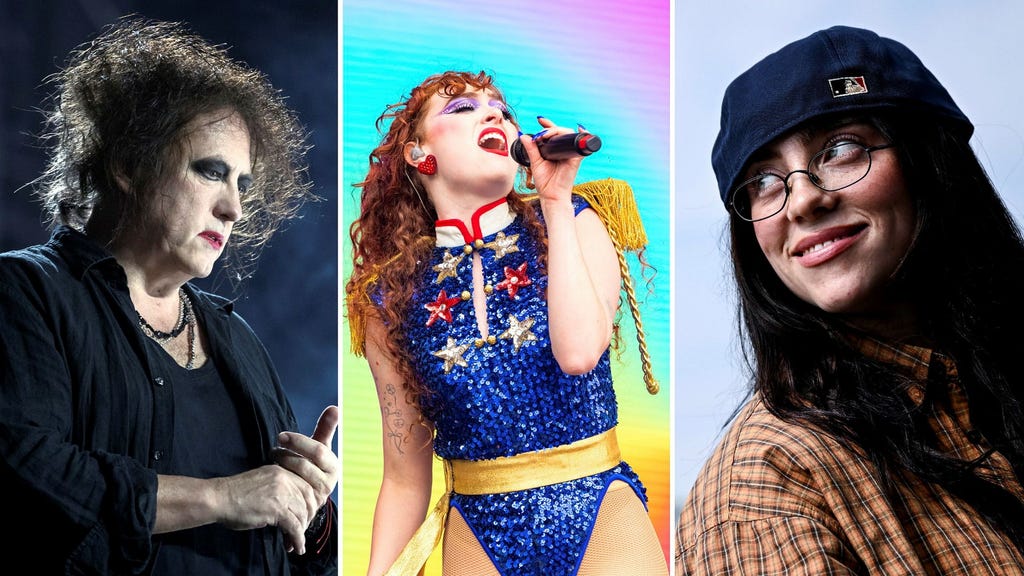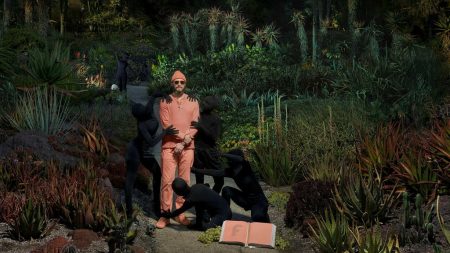The Rise of Authentic Pop and Nostalgic Reunions in 2024’s Music Scene
The year 2024 witnessed a significant shift in the mainstream music landscape, marked by the dominance of female pop artists and the resurgence of nostalgic reunions. This shift is reflected in the results of a listener poll conducted by a prominent newspaper, which saw Chappell Roan’s "Good luck, babe!" and Billie Eilish’s "Birds of a feather" claiming the top two spots, respectively. While the inherent quality of these pop anthems undeniably contributed to their success, their popularity also underscores a broader trend of embracing authentic, relatable artists and a yearning for the familiar sounds of the past.
The ascension of Chappell Roan to mainstream stardom is a testament to the power of social media in shaping contemporary music culture. After a decade of navigating the music industry, Roan’s breakthrough didn’t come through traditional promotional channels but rather through organic growth fostered by direct interaction with fans online. This approach resonated with an audience hungry for a more human and relatable connection with their musical idols. This desire for authenticity mirrors the cultural zeitgeist, where genuine expression and connection are highly valued.
Billie Eilish, already a prominent figure in pop music, further solidified her position with "Birds of a feather." This poignant ballad resonated with listeners due to its raw vulnerability and emotional depth, showcasing a different side of Eilish’s artistry. The success of both Eilish and Roan highlights a shift away from manufactured pop personas toward a more authentic and personal approach to music-making. This trend appears to be resonating strongly with contemporary audiences.
Beyond individual artists, 2024 also witnessed a resurgence of established acts, highlighting a wave of nostalgia sweeping the music world. The Cure’s "Alone," securing the third spot on the listener poll, exemplified this trend. Their return, marked by the release of their first album in 16 years, provided solace and familiarity to an audience seeking comfort in turbulent times. The Cure’s enduring appeal and the positive reception of their new material demonstrate the power of nostalgia and the enduring relevance of established artists.
The broader musical landscape of 2024 was characterized by the dynamic presence of veteran female artists who continued to innovate and redefine their sound. Beyoncé, Taylor Swift, and Billie Eilish all released critically acclaimed albums, showcasing their artistic evolution and ongoing influence. Alongside these established giants, newcomers like Sabrina Carpenter and Chappell Roan carved their own space in the mainstream, further cementing the dominance of female artists in the pop sphere.
The success of songs like "Good luck, babe!" and "Birds of a feather" transcends their individual artistic merit. They represent a larger cultural shift toward valuing authenticity, relatable narratives, and human connection in music. Simultaneously, the resurgence of bands like The Cure highlights the enduring power of nostalgia and the comfort found in familiar sounds. The confluence of these trends shaped the musical landscape of 2024, marking a year of both innovation and reflection in the world of pop music. The continued success of these trends suggests a lasting impact on the future of the industry. The embrace of authenticity and the enduring allure of nostalgia appear to be more than fleeting trends, pointing towards a deeper shift in how music is created, consumed, and appreciated.
The dominance of female artists in 2024 further reinforces the ongoing evolution of the pop music landscape. From established icons like Beyoncé and Taylor Swift to emerging talents like Chappell Roan and Sabrina Carpenter, women have taken center stage, driving innovation and shaping the sound of contemporary pop. Their success not only speaks to their individual talent but also reflects a broader cultural shift towards greater representation and inclusivity in the music industry. This increased visibility and influence are likely to continue shaping the musical landscape for years to come.
The rise of Chappell Roan exemplifies the changing dynamics of the music industry in the digital age. Her organic growth through social media demonstrates the power of direct artist-fan interaction in building a dedicated following and achieving mainstream success. This model challenges traditional promotional strategies and highlights the evolving relationship between artists and their audiences in the digital sphere. As social media continues to play a central role in music discovery and consumption, this approach is likely to become increasingly prevalent in the future.
The success of "Birds of a feather" underscores Billie Eilish’s ability to connect with listeners on a deeply emotional level. The song’s vulnerability and raw honesty resonate with an audience seeking authenticity and relatable narratives in their music. Eilish’s willingness to explore complex emotions and personal experiences in her music has solidified her position as a leading voice in contemporary pop. This trend toward emotional vulnerability in music suggests a growing desire for deeper connection and meaning in an increasingly complex world.
The enduring appeal of The Cure’s "Alone" highlights the cyclical nature of music trends and the enduring power of nostalgia. The band’s return after a long hiatus provided a sense of familiarity and comfort to listeners, resonating with a desire for the familiar sounds of the past. This nostalgia trend is likely to continue as older generations revisit their musical roots and younger generations discover the music of previous eras. The cyclical nature of music trends ensures that the past continues to inform and influence the present, creating a dynamic and ever-evolving musical landscape.
The trends observed in the 2024 music scene, from the rise of authentic pop stars to the resurgence of nostalgic reunions, reflect broader cultural shifts and the evolving relationship between artists and their audiences. The embrace of authenticity, the power of social media, and the enduring allure of nostalgia are all shaping the future of music. As the music industry continues to adapt to the digital age and the changing demands of listeners, these trends are likely to become even more prominent in the years to come.














